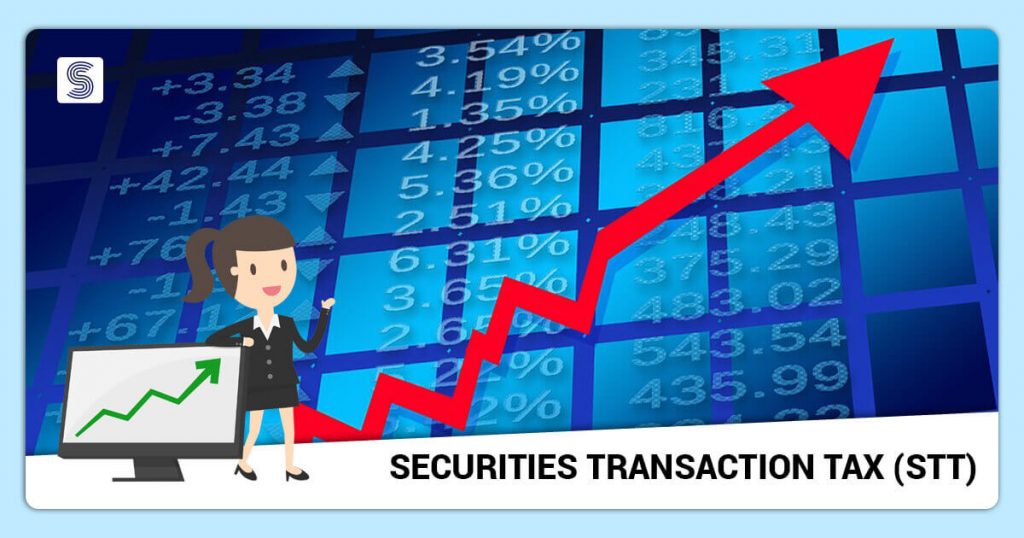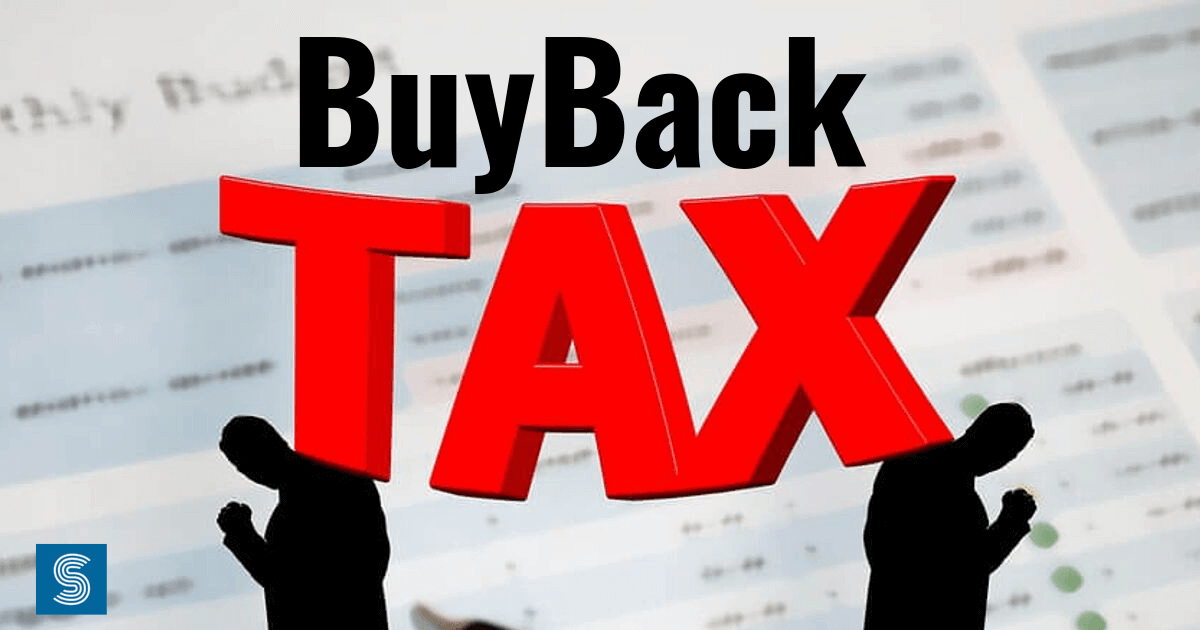What is the Securities Transaction Tax (STT) in India?

Dashmeet Kaur | Updated: Nov 16, 2019 | Category: SEBI Advisory
Taxpayers often take tax evasion measures to protect their tax outflow from the Government. Henceforth, it becomes requisite for the Government to keep a close eye on such measures and issue new provisions to restrain the illegal practices. In 2004, the Finance Act introduced a tax called the Securities Transaction Tax (STT) to reduce the rate of evading taxes on capital gains. The central motive to release the STT act was to create an efficient tax collection system from financial market transactions. This blog will answer all your queries regarding the Securities Transaction Tax.
Table of Contents
What does STT stand for?
STT stands for Securities Transaction Tax, which is a tax payable on the value of securities (excluding commodities and currency) transacted through a stock exchange in India. STT is like a financial transaction tax corresponding to Tax Collected at Source (TCS). It is a direct tax levied on every sale and purchase of securities that have listed on the recognised stock exchanges. The Government regulates the functioning of the Securities Transaction Tax Act (STT Act). The Act has listed numerous taxable securities transactions such as derivatives, equity, unit of an equity-oriented mutual fund, etc.
Further, it includes unlisted shares that were sold under an offer for sale to the public and subsequently listed in stock exchanges. STT is an amount payable above the transaction value, thereby, increasing the transaction value.
Browse through our articles on services provided at Swarit Advisors, and just let us know if we can help you with your IPO or Comapny Takeover or SEBI Advisory Services.
Scope of Securities Transaction Tax (STT) in India
STT is a direct tax levied on every sale and purchase of securities which has listed on the recognized stock exchanges. The Government regulates the functioning of Securities Transaction Tax Act (STT Act). As per the Securities Contracts (Regulation) Act, 1956, the tax rates for different types of securities varies. Let’s have a look at the securities on which this tax is applicable:
- Stocks, bonds shares, debentures, scrip, debenture stock or other marketable securities of the same nature of any incorporated company or other corporate bodies.
- STT on Government securities of equity nature.
- Further, It applies to derivatives and securitised debt instruments.
- Interest or rights in securities.
- STT applies to the securities of equity-oriented units of mutual funds.
- Security receipt as defined in section 2 clause (zg) of Securitization and Reconstruction of Financial Assets and Enforcement of Security Interest Act, 2002.
- Also, this tax affects units or other instruments issued by a collective investment scheme to the investors.
STT Computation
| Sr.No | Taxable Securities Transaction | STT Rate | Person responsible to pay SST | Required value to be paid |
| 1 | Purchase of equity share | 0.1% | Purchaser | Price at which equity share got purchased* |
| 2 | Sale of an equity share | 0.1% | Seller | Price at which equity share got sold* |
| 3 | Sale of a unit of oriented mutual fund | 0.001% |
Seller |
The selling price of the unit |
| 4 | Sale of a unit of equity-oriented mutual funds in recognized stock exchange than by actual delivery or transfer and intraday traded shares | 0.025% | Seller |
The selling price of equity share or unit |
| 5 | Derivative; Sale of an option in securities | 0.017% | Seller | Option premium |
| 6 | Derivative; Sale of an option in securities where the option gets exercised | 0.125% | Purchaser |
Settlement price |
| 7 | Derivative; Sale of futures in securities | 0.01% | Seller | The trading price of such futures |
| 8 | Sale of a unit of an equity-oriented fund to the Mutual Fund – Exchange-traded funds (ETFs) | 0.001% | Seller | Price at which unit got sold* |
| 9 | Sale of unlisted shares in the offer for sale to Public and inclusive in IPO | 0.2% | Seller | The selling price of such shares |
| 10 | Purchase of units of equity-oriented mutual funds | NIL | Purchaser | Not Applicable (NA) |
Securities Transaction Tax (STT) under Income Tax
The taxation of profit or loss from Securities Transactions get categorised in two scenarios. Firstly it relies upon whether the activities of purchasing and selling of derivatives/share get classified as a business activity or professional activity. Moreover, STT also depends on whether the income from the securities transactions get inscribed under the title “Income from Capital Gains” or “Profits and Gains of Business or Profession.”
Scenario 1: “Income from Capital Gains”
In the Scenario of Income from Capital Gains, the assesses either get Salaried or get engaged in some other professions wherein, trading in securities is not the principle of business. In such cases, the gains or losses from securities transactions get taxed under it.
Gains or losses are liable to the Long Term Capital Gains (LTCG) tax or Short Term Capital Gains (STCG) varying upon the period of holding. Similarly, if the time duration of the holding is less than one year, then the gains get categorized as Short Term Capital Gains (STCG).
However, if the holding period is equivalent to or greater than one year, the gains get classified as Long Term Capital Gains (LTCG). An equity share that got sold by a reputed stock exchange and of which STT has paid already then it gets exempted from LTCG under Section 10 clause (38) of the Act.
Likewise, in the case of STCG, the gains shall get taxed at 15% only, plus surcharge and education cess.
Points to Keep in Mind:
- The rates of STCG and LTCG are 15%, and NIL respectively. These rates are only available when a recognized stock exchange sells the specified security. Private transactions or deals, not routed through a recognized stock exchange in India, will not get covered.
- The purchase of the specified securities can be done through any mode. Besides, it doesn’t need to be through a recognised stock exchange
- The exemption is not accessible to transactions of which the STT were not paid.
- As LTCG gets exempted, so the Long Term Capital Loss arising from the specified securities, could not be set-off against any other income/gain.
Scenario 2: “Profits and Gains of Business or Profession”
Profits and Gains of Business or Profession is ascenario wherein trading in securities is the principle business of assesses. In such as situation the gains or losses get categorized as business income, which further gets taxed at a regular rate of the income-tax.
STT paid in regards to the taxable securities transactions that were entered in the course of business shall get enabled as a deduction under Section 36 of the Income-tax Act.
Conclusion
Also, Read: What is Securities Transaction Tax- A Complete Guide.














